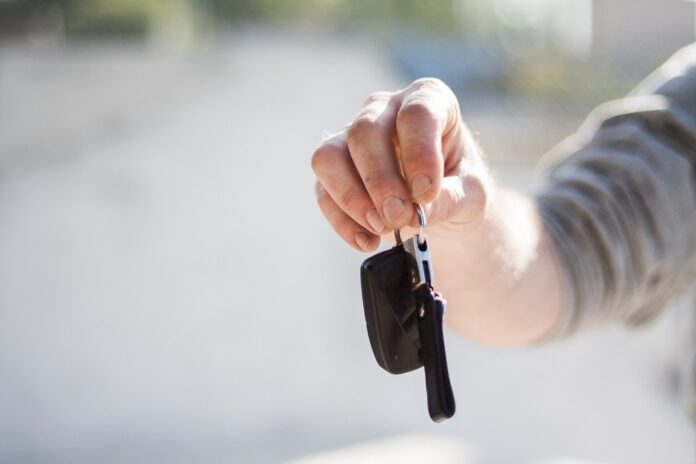It’s safe to say that when it comes to owning a car, time is not on your side. From the moment you sign to buy a car it will quickly start losing value and by the time it is 5 years old and you come to sell it, it is more than likely to be worth just 40% of what you paid for it.
Car depreciation is the difference in the value of what the car cost to buy and how much it is worth when you sell it. It is something which we all have to deal with and try our best to manage, even if it can sometimes feel like a losing battle.
But there are measures that car owners can take to fight depreciation and maximise the value of their car. It’s wise to consider the resale value of a car before you’ve bought it and be aware of any issues that may affect its valuation.
Why do cars lose value so quickly?
Like with any other consumer product, as soon a car has been bought and used it will no longer be new and what someone is prepared to pay for it will be considerably less. In an instant a car will go from new, to nearly-new, to used, and it will lose value exponentially along the way.
The more a car is driven, the more it will suffer wear and tear, and with greater mileage on the clock it is more likely to need repairing. Combine this with new models flooding the market every 6 months, which have new designs and the latest technology, and it can be a tough affair trying to hold on to the value in your car.
What to consider when buying a car?
Whilst all cars lose value over time, not all will depreciate at the same rate. A used car will hold more of its value than a new model, whilst sports and luxury cars naturally retain a greater proportion of their value since there is more demand and less supply.
If fuel prices unsuspectedly rise this may affect the value of a car depending on its MPG and may increase the resale value for hybrid and electric vehicles.
More low-emission zones in UK cities are likely to influence the value of high emission vehicles too, especially if they will be soon banned from certain areas. Traditionally, petrol cars have held their value better than diesel, but electric vehicles may soon be the better choice for UK motorists.
Consider alternative methods to buying a car like leasing or finance. If you choose to lease a car you will pretty much avoid any depreciation and resale issues. You’ll never actually own the car and your leasing fees will essentially cover the depreciation of the car whilst you drive it. There is also the option for personal contract purchases where you pay monthly instalments towards the cost of the car and at the end of the contract you can either buy the car outright or find a new deal.
How to maximise resale value
Avoid modifying your car – Adding customisations to your car like body kits or engine tuners is not recommended by manufacturers. Not only will customisations impact the resale value of your vehicle, but is also likely to limit your market as not all drivers will want to drive a modified vehicle.
Modifications can damage the structure and safety of the vehicle, especially if carried out by an unapproved mechanic who doesn’t genuine manufacturer parts. Customisations affect insurance premiums too and your resale value is likely to reflect this.
Properly service your car – When you buy a new car you will need to follow the recommend service schedule of the manufacturer to maintain the warranty. Manufacturer services are done through a manufacturer approved garage and performs the recommend checks based on the make and model of your car.
Properly servicing your car will help keep the vehicle safe and you are less likely to experience issues like breakdowns or engine faults. If you record these services in your vehicle logbook and make them available to future buyers, this is likely to help maintain your resale price as it gives potential buyers the confidence that the car has been properly serviced and taken care of.
Compare options to sell – With the internet at your fingertips there are many ways that you can sell your car. You choose to sell privately online or to a friend, or go through a dealership and part exchange your car to offset its value against the price of a new one.
Some companies offer a free online valuation service to get an instant price on what your car would be worth if you were to part exchange with them.
To find the best resale value for your car you’ll need to do the leg work yourself and search through the abundance of car buying services to find the best price. If you know the going market rate for the make and model for your car, you are in a much better position to be able to squeeze the best possible price you can from a buyer.
Sell at the right time – Take into consideration all the same factors that someone buying a car would. Research the average market price for your car and consider other market factors that might impact the decision of someone buying a car.
If you know you are going to sell your car in the next three years, start paying attention to the market now and you might realise it’s a better market to sell in now than it will be in the future. An example of this would be that SUVs are more in demand during colder, winter months, meaning you could get more money for your SUV (if you have one) in the summer/spring.
Take good care of your car – It might be an obvious piece of advice but it is important nonetheless. No one wants to buy a car that has visible damage and has been poorly serviced in the past. A car that is well taken care of stands out to buyers and it gives car dealerships less of a reason to reduce their part exchange valuation of your car.
Limit mileage where possible – if you find instances where you could avoid using your car and accruing mileage, and you’re particularly conscious of resale value, then consider taking opportunities of alternative transport to keep the miles from adding up.







